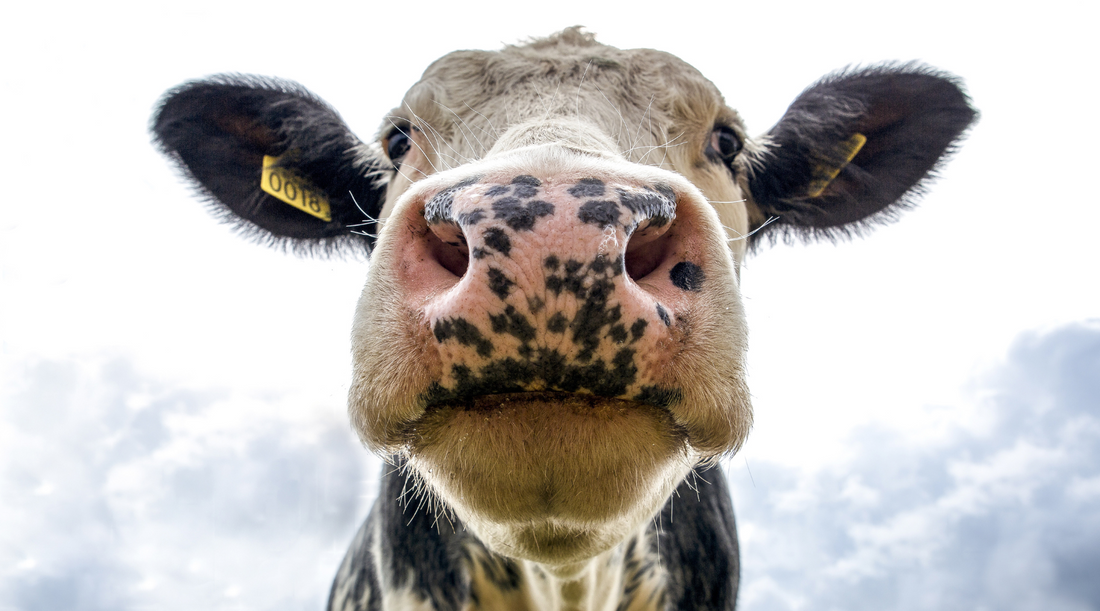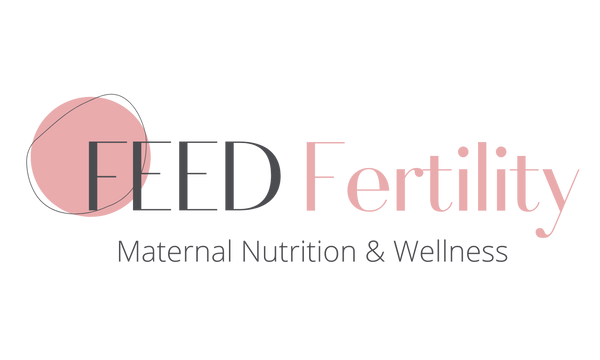
What’s The Deal With Dairy?
Amongst the big nutrition debates of what one should or should not be eating for optimal health, diary is a recurring topic. Many nutritionists and dieticians believe that dairy is an important food group and a key component of any healthy diet, while others argue that the benefits of its nutritional properties do not outweigh its potential harm. In the context of female fertility, this debate gets ever more interesting – and at times, confusing. Today, we hope to shed some light on the dairy debate by exploring the pros and cons of consuming dairy while trying to conceive.
The Case FOR Dairy
The case for dairy rests on its impressive nutritional value. Dairy is a great source of calcium, which is important both pre and during pregnancy to aid the formation and development of baby's bones - as well as Vitamin D, which helps improves calcium absorption and is a key vitamin for female fertility. In fact, several studies show that vitamin D deficiency is a risk marker for reduced fertility and various adverse pregnancy outcomes. Additional vitamins such as B2, B12, and A, as well as minerals choline, iodine, zinc, magnesium, and selenium, are also found in dairy, all of which play important roles in fertility and fetal growth.

The Case AGAINST Dairy
The case against dairy can be summarized as its inflammatory and/or hormone-disrupting effects in some people. Let’s explore these two arguments for a moment.
Argument #1: Inflammation
It’s estimated that about 75% of the world’s population have a dairy intolerance – this is usually called “lactose intolerance” – a condition where our body does not produce enough lactase (an enzyme that breaks down lactose). However, the main problem with dairy (as far as it affects fertility), is not the lactose, but a protein called A1 casein.
As dairy moves through our digestive tract, a part of A1 casein breaks off to become casomorphin or BCM7. This opioid peptide (protein fragment) can cause inflammation in some people if it enters the bloodstream. Individuals that have no issues with dairy usually digest and excrete casomorphin before it enters their bloodstream.
In addition to the fact that not all individuals will have an inflammatory response to A1 casein in dairy, it’s important to note that not all dairy contains A1 casein. A1 casein is present in milk specifically from Holstein cows, the predominant dairy herds in the USA, Canada, Australia, and the UK. Dairy from the milk of Jersey cows, goats, and sheep, on the other hand, is predominantly A2 casein – a different type of protein that does not form casomorphin BCM7 and therefore causes inflammation.

Argument #2: Hormone Disruption
The second argument against dairy is related to its potential disrupting effect on female reproductive hormones. More specifically, this applies to non-fat and low-fat dairy.
A study from the Harvard School of Public Health looked at the diets of 18,500 women with anovulatory infertility and found that a high intake of low-fat dairy foods (about 2 servings a day) was associated with an increased risk of anovulatory infertility, whereas intake of high-fat dairy foods (1 or more servings a day) was associated with a decreased risk. In fact, women who ate two or more servings of low-fat dairy foods per day had an 85% higher risk of ovulatory infertility than women who ate less than one serving per week.
The reason for this is not 100% understood but many hypothesize it is due to the type of hormones left behind after the process of skimming dairy. Since estrogen and progesterone bind to fat molecules, they are removed from milk when producing low-fat dairy. What’s left behind are androgenic hormones (such as testosterone), which can disrupt ovulation in some women.
When making the case for full-fat dairy, it’s important to note two things. First, the Harvard study only found this association in women with ovulatory infertility specifically. Second, while the data suggests high-fat dairy may be a better choice for women, the reverse seems to be true with men. Evidence from several studies links low-fat dairy to improved sperm concentration and motility and full-fat dairy with lower sperm concentration.

What About PCOS & Endometriosis
Understanding the two aforementioned arguments against dairy, it should come as no surprise why a dairy-free diet is often recommended for women TTC with PCOS and Endometriosis. In Endometriosis and Inflammatory Type PCOS, a dietary protocol that helps reduce body inflammation is key to managing symptoms and improving fertility outcomes. Inflammation can make hormone receptors overly sensitive to androgens like testosterone, in addition to impairing insulin sensitivity. Secondly, when considering the potential hormone-disrupting factor, it is also not surprising that women with PCOS stay away from skimmed dairy products. Many women with PCOS already have high androgen levels, which can come with symptoms like acne and male-pattern hair growth. Adding even more androgens to the mix is probably not a good idea.
However, in the case of PCOS, there is a third reason why dairy may not be the best choice. Women with Insulin-Resistant PCOS have insulin receptors that do not respond as well as they should. When blood sugar is high, they require more insulin to do the job of bringing sugar out of the bloodstream and into the cells of the body. One factor that measures how a specific food raises blood sugar levels (and how much insulin it may require) is Glycemic Load. Dairy products have a surprisingly high glycemic load. Studies have shown that a tub of yogurt can cause a higher blood sugar spike than two pieces of white bread. For women with Insulin-Resistant Type PCOS, this can be problematic as blood sugar spikes mean more insulin is released in the blood.

Bottom Line
As you can see, the decision about whether or not to eat dairy as part of a fertility diet really comes down to the specific needs of the individual. If you are a woman who does not have an underlying condition like endometriosis or PCOS and does not exhibit signs of an inflammatory response to the A1 casein protein, then dairy may very well be a valuable addition to a balanced fertility diet, provided that you focus on full-fat dairy and avoid skimmed dairy products.
If on the other hand, you show signs of dairy sensitivity (and inflammation), and/or suffer from endometriosis or PCOS, you may choose to take measures such as 1. Limiting your intake of dairy products, 2. Choosing dairy that contains the A2 casein protein, and/or 3. Swapping dairy for non-dairy substitutes. Some great options include…
- Milk Substitutes: almond milk, coconut milk, cashew milk, hemp milk, etc…
- Butter Substitutes: olive oil, avocado oil, grapeseed oil, etc…
- Cream Substitutes: coconut milk (make sure to choose BPA-free cans)
- Cheese substitutes: cashew or almond “cheese” for soft cheese substitutes, and nutritional yeast for potent cheeses like parmesan
Whatever conclusion you come to when it comes to eating dairy or not, what’s most important is that it be an informed decision that you can feel good about. After all, food is meant to make us feel good – emotionally and physically! Now if you’ll excuse me, I’m off to get some iced cream.
MORE LIKE THIS
Separate Fact from Fiction learn about the most common PCOS misconceptions in 10 PCOS Myths, Debunked.
ABOUT THE AUTHOR
Ewa Reid is a Registered Holistic Nutritionist, certifying Fertility Support Practitioner, nutrition & fertility educator, wife, and mother. You can learn more about Ewa on our About page.
